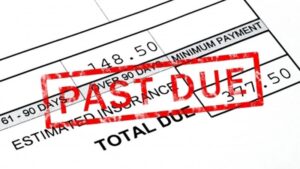Rise in businesses surviving the recession? Load of rubbish!
The British Government is perhaps one of the biggest costs to UK plc.
During the 2007 bank bailout, Her Majesty’s Treasury turned the banks’ private debt into a public liability.
Suddenly, billions of pounds went from private to public ownership as the banks’ debt was transferred into the Government’s account.
The Treasury is owned by the tax payer, so effectively – without our permission – you and I rescued the big banks from financial disaster.
But the Government did not magically raise the £500billion owed by the likes of Royal Bank of Scotland (RBS), Lloyds TSB and HBOs.
It sought help from the money market and borrowed cash from the Sovereign Wealth Fund (SWF) – a state-owned investment fund composed of financial assets, such as stocks, precious metals and other financial instruments.
Now, the SWF’s loan has to be paid back, and at a very high interest rate.
As Prime Minister David Cameron announced in June, the only way the Government can repay its debt is to ruthlessly cut back public spending.
This year, virtually all Government departments saw millions of pounds slashed from their budgets. And as these departments are forced to cut costs; they are spending less, which means less money is going into the economy, and more businesses are failing.
The Government is the largest employer in the UK. Cuts will undoubtedly feed into the private sector, and ultimately hit the general economy.
Let’s take the Department of Education as one example. Less money means fewer schools will be built. This would inevitably mean less work for the construction industry, and subsequently construction suppliers will go out of business.
Any companies who usually supply services to Government departments are now much less likely to do so. When those companies suffer due to fewer contracts; they make redundancies and people become unemployed.
When people are unemployed, they spend less, can no longer afford to eat out at restaurants and take fewer holidays. The consequences are that retailers, restaurateurs and travel companies suffer. And the list goes on.
Those businesses that are able to ride the storm may need to wait a few years before bouncing back.
There’s a saying that goes: ‘Turnover is vanity and cash is sanity’. Cash is king in these times.
I advise all business owners not to over commit right now, and ensure you have some cash in the kitty.
It may sound harsh, but now is not a time to carry your workforce because you feel responsible. Cut out any unnecessary costs. Be lean, and get rid of all the fat if you want to survive.
If you need help with your financial diet plan, get in touch with Insolvency and Law now on 020 7504 1300 for free and confidential advice.
Debtor Alert: Theodore Global Ltd
Theodore Global Ltd: A Company That Fails to Pay Its Staff and Trades While Insolvent If you’re thinking about working with, or for Theodore Global…
Read MoreIrene MacKenzie- The Gatekeeper of Silence
Irene MacKenzie and the Web Around William Jackson In the shadows of the alternative investment world, where buzzwords are abundant but redemptions are not, one…
Read MoreBilly Jackson Update Part 2: Companies of Interest
In our last blog on Billy Jackson, we exposed the web of enablers supporting his business operations. In this follow-up, we turn the spotlight on…
Read MoreThe Grim Truth for Loan Note Holders -79th Luxury Living Six Ltd (LL6)
No assets or safeguards. No clear path to recovery. If you’re one of the many investors who entrusted your money to The 79th Group’s loan…
Read More




